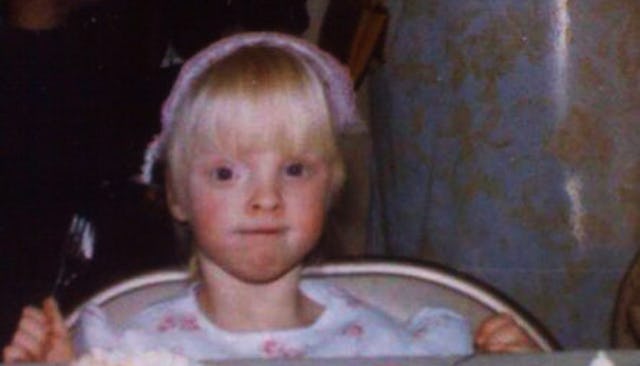Why I Learned to Love Being Albino

I grew up in a small California coastal town that you’ve probably never heard of. I lived five minutes from the beach, the weather was often a mild 62 degrees, and the sun was always shining. Always. Like 528 days out of the year. While friends and family would slather on lotion, lie on their towels, and work on their tans, I was unable to take part in their reindeer games.
You see, I’m albino.
In the lamest terms, what that means for me is that it is physically impossible for me to tan and my eyesight is atrocious. Without glasses my vision is 20/400—twenty times worse than that of those with perfect vision. Even with glasses I still don’t see well. I have to be right on top of street signs to see where I’m at. Subtitles on anything but a movie screen are lost to me. Anyone who’s ever used my computer knows that everything is VERY BIG in order for me to see it without squinting. That big ball of fire in the sky? My arch-nemesis.
And, as vain is it is, getting sunburned when everyone else’s skin glows with a Hollywood-golden hue kind of sucks sometimes.
It wasn’t easy growing up this way. Kids are cruel, as we all know, and the easiest target is seen as the weakest. I was poked fun at for most of my childhood. Slurs like “Mayonnaise,” “Milky Way,” and “Powder” were imbecilic, yes, but they still hurt. I always had to sit in the front row of classrooms. I would oftentimes have to request paper copies of any projected overheads or PowerPoints used in class because I couldn’t read them. It wasn’t painful per se, but it wasn’t easy.
Now that I can look back, though, I’ve learned it was actually a bizarre blessing. The best blessings are generally of the weird variety. You see, I’ve learned that being albino didn’t make me different. It made me memorable.
People always remember the pale girl from school. I was unique. I stood out. When I visit my childhood home, old teachers stop me in Starbucks because they remember me. They may not remember my name, but they remember me. And they remember I was a good student, that I was kind and courteous. My sister still lives there and will occasionally run into people from school and they always ask her about me because I was memorable—not different.
There are a million tan people in the world, but we albinos are only 1 in 17,000. There’s a good chance you’ll remember one if you meet one. And while you may look at us and wonder, “Why won’t she just get a tan?” when the apex of summer has arrived, you will still remember us. And that’s what matters.
The best part about all of this? You’re memorable, too. Albinos don’t have the majority stake in the memorable category. Were you a Delilah in a sea of Jennifer’s growing up? That made you memorable. Were you a redhead surrounded by a sea of bleach blondes? That made you memorable. Raspy voice, birthmark, hazel eyes? You’re not different; you’re memorable.
I want my kids to know that I am not different, I am memorable. Being memorable makes me special in the best way possible. Being memorable means I get to stick out and be noticed. Being memorable is a gift.
And, if I’ve learned nothing else about being albino, I at least know this: I don’t have to worry about tan lines.
Related post: The Beauty of Imperfection
This article was originally published on